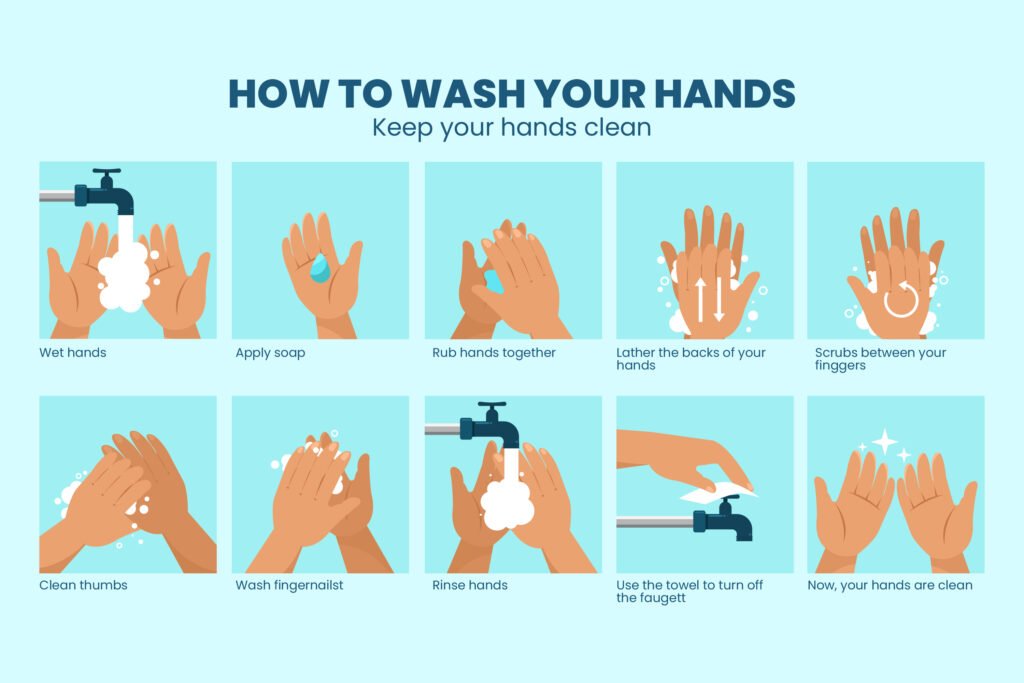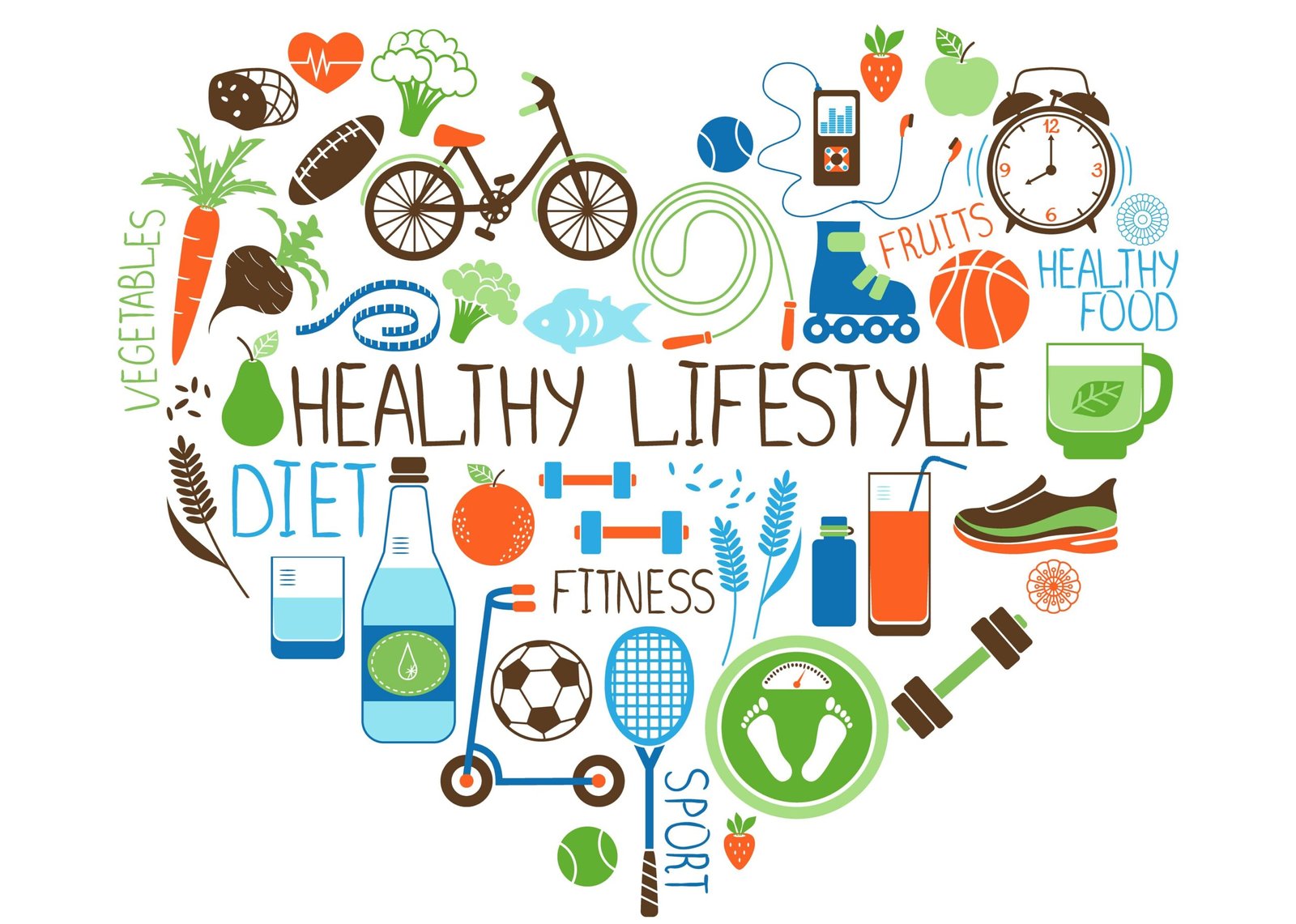How to achieve a healthy lifestyle:Introduction
Achieving a healthy lifestyle isn’t just about dieting or exercising occasionally. It’s a journey towards balance, well-being, and happiness in everyday life. Staying healthy can seem like an uphill battle in a world filled with stress, fast food, and limited time. However, with the right mindset and simple steps, anyone can build habits that lead to a healthier, more fulfilling life. Here, we’ll explore practical tips, essential habits, and lifestyle changes that can help you thrive physically, mentally, and emotionally. Ready to take the first step toward a healthier you? Let’s dive in!
Content Index
Nutrition Key
Living a healthy life is the ultimate goal of people, but they often fail to achieve it because they can’t manage their eating habits. The human body is built from only good and nutritious foods, which provide minerals and organic compounds essential for various biological functions.
Origin of Vitamins:
Essential daily Vitamins for adults and children.
| Vitamins | Origin | Adult | Children |
|---|---|---|---|
| Vitamin: A | Carrots, Sweet Potatoes, Spinach, Broccoli, Jackfruits, and Mangoes. | 700-800mg | 300-500mg |
| Vitamin: B Complex | Grains, Green Peas, Fish, Meat, Milk, Nuts, Green Vegetables and Fruit. | 100% | 100% |
| Vitamin: C | Broccoli, Oranges, Strawberries, Kiwis, Papayas and Tomatoes. | 45-75mg | 15-45mg |
| Vitamin: D | Sunlight, Fortified milk, cereals, Salmon and Sardines. | 15-20µg | 10-15µg |
| Vitamin: E | Sunflower oil, Almonds, Hazelnuts, and Spinach. | 15ml | 6-7ml |
| Vitamin: K | Spinach, Broccoli, soybean oil and kele. | 120µg | 30-60µg |
Vitamin: B Complex:
Scientist Casimir Funk realized that certain food substances help prevent metabolic disorders. In 1912, he discovered the Vitamin B complex.
Malnutrition-Causing Food
We consume food which is often unhealthy. Unhealthy food lacks essential nutrients like vitamins, calcium, protein, and minerals. Such a diet leads to energy deficiency, weakens internal organs, and compromises the immune system.
Below are some examples of Malnutrition foods:
Tea: Potential Downsides
Drinking tea is a century-old tradition. Used worldwide as a beverage, we consume tea so comfortably that we fail to recognise its harmful aspects. We do not limit our consumption, and thus, we face more significant harm.
Our most popular tea is milk tea. Without milk tea, our tea experience feels incomplete. However, specific components in milk tea, such as tannin, combine with calcium and hinder iron absorption. As a result, iron deficiency in the human body can lead to anemia.

There are additional ingredients in tea that can hinder health benefits.
For example:
1. Oxalate: The oxalates present in tea can increase the risk of kidney stones.
2. Caffeine: Excessive tea consumption can lead to anxiety and insomnia due to the caffeine present in tea. Additionally, caffeine stimulates acid secretion in the stomach, worsening gastric issues.
3. Tannin: They inhibit iron absorption.
The various components in tea create an acidic environment in the stomach, leading to a feeling of fullness.
We should drink tea in moderation; excessive tea consumption hinders health benefits.
Coffee: Potential Downsides
Coffee, like tea, contains certain components, such as caffeine and acidity compounds, which can be just as harmful as the ingredients found in tea.
Additionally, it contains two more components.
For Example:
Acrylamide: When coffee is roasted, this chemical is produced, which increases the risk of cancer.
Chlorogenic Acid: This acid can cause gastric issues or digestive problems.
Fast Food
Fast food may be enjoyable to eat, but its harmful aspects are like a trap that invites illness. Such foods usually contain high amounts of fat, salt, and sugar, which negatively impact the body.
Fast food contains low fibre content, which can lead to digestive issues and cause constipation. Additionally, it lacks essential vitamins and minerals, resulting in weakened immunity.
In short, eating fast food occasionally can be enjoyable, but consuming it excessively will not lead to good health.
Guidelines for Eating Food
Our common concern is how to achieve a healthy lifestyle. To attain a healthy lifestyle, specific dietary guidelines must be followed.
Hand Hygiene
Washing hands before eating is essential because viruses, bacteria, microorganisms, dirt, oily substances, or other harmful and unwanted particles trapped on hands can enter the body through food, increasing the risk of various diseases.
● Eating with unclean hands can introduce bacteria, viruses, or parasites into our digestive system, leading to diarrhoea or loose stools.
● Bacteria like Salmonella typhi and E. coli can enter the body through unclean hands, causing typhoid and food poisoning.
● Additionally, through unclean hands, the Hepatitis-A virus can enter the body, causing liver problems
Hand Hygiene Essentials
When washing hands, we should use one hand to scrub the other thoroughly with flowing water and soap or sanitizer for at least 20 to 30 seconds to ensure proper cleanliness.

Narrated by Hazrat Salman Farsi (may Allah be pleased with him) that the Messenger of Allah (peace and blessings be upon him) said: “Washing hands before and after eating brings blessings.”
Sunan Ibn Majah, Hadith number 3268, Abu Dawood, Hadith number 3755
Another narration is found in Sunan Abu Dawood, Hadith number 3755, where the Prophet Muhammad (peace and blessings be upon him) instructed to wash hands before and after eating, which is considered essential for health and cleanliness both before and after consuming food.
The right time to drink water :
We are accustomed to drinking water while eating, but we often do not realize how harmful this habit can be. Drinking excessive water during meals reduces the effectiveness of the digestive juices in the stomach, resulting in prolonged digestion times.
Additionally, it interferes with nutrient absorption by diluting enzyme density in the digestive system.
If it is necessary to drink water, it should be done slowly and in small amounts.
Proper Water Drinking Tips:
It is better to drink water 30 minutes before or after a meal. This allows the digestive chemicals and enzymes to function properly for digestion.
Drugs Destroy Wellness
Intoxicating substances, such as narcotics and smoking, have long-term and severe harmful effects on the human body. For instance, they adversely affect the respiratory system and the cardiovascular system.

Additionally, they increase the risk of cancer and weaken the immune system, which hinders the pursuit of good health.
Not only that, smoking is harmful to both the smoker and the people around them. It is a dangerous habit that is difficult to quit, often leading individuals down a path of self-destruction. Therefore, it is crucial to quit smoking and raise public awareness about its harmful effects.
Therefore, prioritize achieving good health for yourself and encourage your family members and those around you to strive for a healthier lifestyle.
The importance of sleep
Sleep is extremely important for good health and a long life. People often think they need more time for work and push sleep to the end of their day, giving excuses like entertainment or tasks. They fail to prioritize the necessity of sleep due to distractions like mobile phones, TVs, and other screens.

To ensure quality sleep, one should go to bed regularly at a fixed time, preferably between 9 and 10 PM. During this time, the hormone melatonin is released, promoting better and more restorative sleep for the body. A minimum of six to eight hours of sleep is essential to meet the human body’s requirements.
Benefits of Sleep:
- Sleep helps to restore the cells in our body.
- Sleep boosts the human body’s immune system, making it easier to prevent various infections and illnesses.
- Adequate sleep replenishes the brain’s energy. It also enhances the brain’s ability to store new information and improve learning. This boosts our attention and memory.
- During sleep, the body repairs itself by creating new cells and repairing old or damaged ones. Specifically, during deep sleep, growth hormones are released, which aid in muscle and tissue regeneration. Additionally, during sleep, the body produces proteins called cytokines, which enhance the immune system and help combat infections or inflammation. Regular sleep enables the body to fight against viruses and bacteria.
Water: The key to a Healthy Life
Water is an important aspect of achieving a healthy lifestyle and is essential for the human body.
The body of an adult human is composed of 60%-70% water. Drinking sufficient water daily helps various organs of the body function properly. Water removes toxins from the body, facilitates the digestion process, enhances skin glow, and keeps the body hydrated. Research suggests that an adult should drink 2-3 liters of water daily. Especially in hot weather, it is necessary to drink more water.

